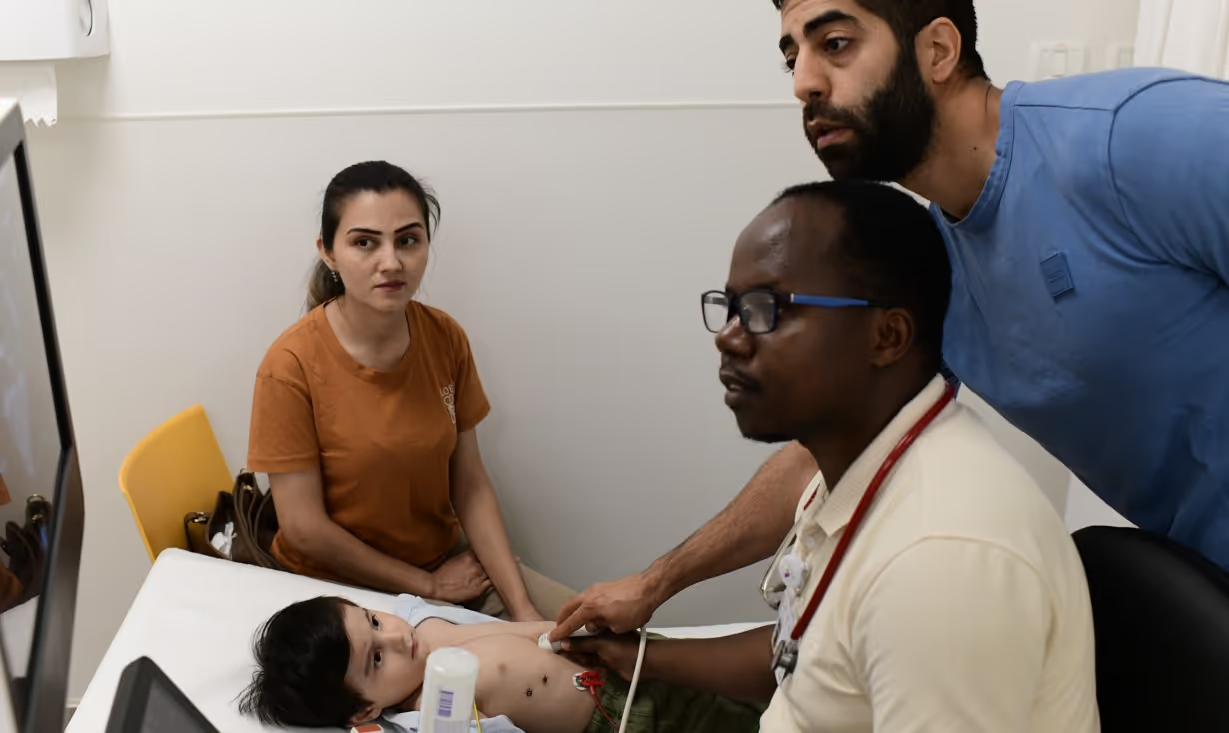Dr. Habtamu Sime spent two years in Israel with Save a Child’s Heart in order to advance his skills as an intensivist in the pediatric ICU and save lives in his home country of Ethiopia.
1. Where and when were you born?
I was born in 1985 in Bale, which is South East of Ethiopia.
2. What was your family life like?
My family life was very average, my parents worked in farming and agriculture. I am one of eight children. Where I am from is a rural area where children are considered as resources. My father encouraged my siblings and me to pursue obtaining Bachelor degrees. My mother died when I was 10 years old - most likely from Rheumatic Heart Disease.
3. Why did you want to be a doctor?
I wanted to pursue a profession which I would work with my brain rather than through physical labour. I was an excellent student and I was supported and encouraged by my uncle and teachers to pursue medicine.
4. What experiences motivated you to pursue medicine?
Studying medicine teaches you that life is not easy. As a doctor, you understand that as humans, we are always on the precipice of life and death.
5. What medical training have you received and where?
I studied medicine at Jimma University Medical School in Ethiopia. I worked in Jimma University Hospital in pediatrics and child health before coming to Israel.
6. Why did you choose your specialty?
In my fourth year of medical school, the professor began the class with the statement, "half a million children under the age of five die of simply preventable causes in the ER each year". This statement motivated me to pursue my specialty.
7. How did you find out about the medical training program in Israel?
I expressed my interest in pediatric ICU care to my professor, cardiologist Professor Abraham Haileamlak, who had formerly trained at Save a Child’s Heart. He directly connected me with Save a Child’s Heart.
8. Why did you decide to pursue this program with Save a Child’s Heart?
I decided to pursue this program with SACH because I wanted to increase my professional care. And I am interested in their mission, saving children from all backgrounds.
9. What is the status of pediatric care and/or your specialty in your home country?
Pediatric cardiac care is in its infancy in Ethiopia. I work at Black Lion Hospital, the only pediatric cardiac center in Ethiopia. We currently have a cardiologist, Dr. Demeke, a cardio-theuractic surgeon, Dr. Yayu, an intensivist, which is my position, all trained in Israel. Our anesthesiologist, Dr. Tolessa, is currently completing her training in Israel as well. In addition to challenges facing a small team in a country of more than 100,000,000 people, there is also a severe lack of consumable equipment.
10. What motivates you to train and return to your home country to practice medicine?
I am here first for myself and I am motivated to return to my home country to teach fellow physicians ICU care.
11. How long is your training in Israel for?
My training in Israel was two years long, I was here from 2015-2017 and I came back in February 2019 - April 2019 to be refreshed on everything I had learned.
12. What expectations have you had so far with Save a Child’s Heart have stuck out to you - can you share a story?
Save a Child’s Heart considers everyone as equals. Most of the children receiving treatment are not Israeli, yet they are treated as equals.
13. How did you prepare to travel to Israel?
What you hear on the news about Israel is not good, but when I came here it was totally different than that. It's a paradox - there is a war in Gaza and Gazans are being treated by SACH.
14. What were your first impressions of Israel?
I consider Israel my second home, I am amazed by the hospitality here.
15. What did/do you miss most about your home life/country?
I missed my family and my wife, who is a nurse. I now have a son as well.
16. What is your hope for the future?
I hope for today, the future is not in my hands. I wish my country will be like Israel and that we will be able to do every surgery that our children need. I wish that we may help other nations like Israel and SACH do.
.avif)

.avif)